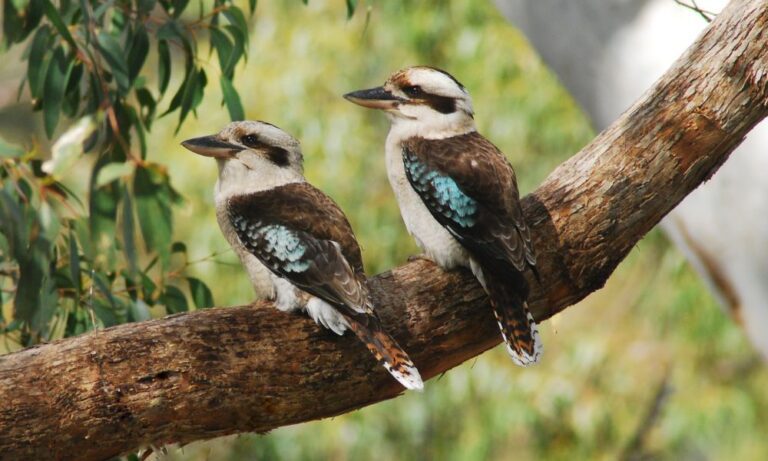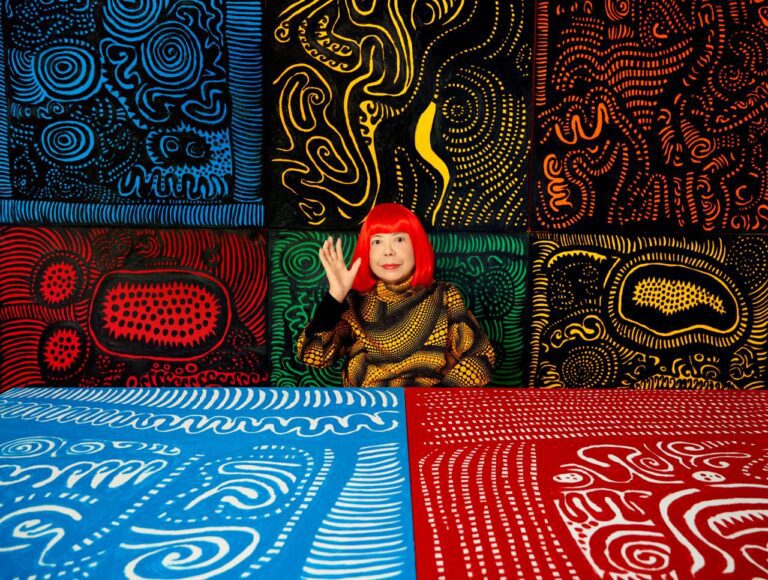It will be a long, tough road, says the doctor. Dorothy cries. Bill kisses her gently on the forehead. She’s still asleep. It’s just light enough to see where his clothes are. They are where they’ve always been for the last 66 years. Neatly folded on top of the dresser. It was a trick he learnt very early – leave them out the night before so he can just slip them on in the dark without waking her. It isn’t necessary in the summer, when the sun gets up at the same time as he does. But winter – with its deep chills and condensation running down the windows – is always more difficult. It’s autumn now. Neither here nor there.
He dresses and makes his way downstairs. The kitchen light flickers to life. Last night’s chops are in the fridge, and he wonders if he should have one. His old man used to have chops for brekkie. And bacon. And eggs. And sausages. Bill has already passed the age his old man was when he died, and he’s just been to the doctor. Clean bill of health for old Bill.
But conscience gets the better of him and he leaves the chops alone. Toast and jam it is, then. He eyes Dorothy’s organic muesli suspiciously. A lot of good that’s done her, he thinks.
Bill loves his wife. He’s loved her since that first dance down at the McKelvie woolshed. And he loves his daughters. They’ve all got families of their own now, except Cass. She’s still hanging out with that dopey joiner. He worries about her sometimes. But Bill’s got more grandkids than you can shake a stick at, so many that he can’t remember half their names. He loves them all, even the autistic one. Especially the autistic one. He loves them all equally. His greatest success.
He checks his watch. Damn, he says. Late again.
He never used to be late. He tells himself it’s just part of getting older. He deserves to slow down a bit. He can slow down as much as he wants when he retires. He doesn’t want to retire.
He gets his bag. Dorothy hasn’t made his lunch. But she’s got enough on her mind. He’ll buy lunch from the bakery. A pie, maybe. Clean bill of health. He deserves a pie.
He doesn’t go up to see her before he leaves. He lets her sleep. She’s been looking tired. She’s lost weight. Maybe he should bring pies home, or fish and chips. Yes. Fish and chips. He’ll ring her later. They can take them to the beach. With the girls. All together.
He leaves. The door clicks shut behind him, and he notices how nippy it is. He turns, unlocks the door, goes back inside. Takes his coat from the hook in the laundry. Leaves again.
There is no sign of life in their cul-de-sac at this time of morning. Most of his neighbours have been here for years, their kids grew up together, went to the school up the road. They played together, a couple of them fell in love and are raising a family just round the corner. Apples don’t fall far, even his own. His walk to work won’t take him past his girls’ houses, but they are close enough to visit when he wants. Even Cass and that dopey joiner. He never learnt the guy’s name. He never learnt any of her boyfriends’ names.
The girls should be up by now, getting ready for school. Wills Street is noisy. Buses roar commuters to their jobs in the CBD. He’s glad he doesn’t work there. Too many people. There was a bus service to the depot when he was younger, but Bill always preferred to walk. They cancelled the bus service in the ’70s.
A rubbish truck crawls along next to him, and plays cat and mouse as he walks. He inches ahead when it stops to pick up a wheely bin. Then it overtakes him again, stopping a few metres ahead. The noise and fumes are actually annoying, and he is glad when it turns off into James Street.
The footpath is cold.
There are kids walking to school. They stare at him. He doesn’t mind. He taught his own girls all about stranger danger. He never got the chance to walk them to school; he always left too early. And they took the bus to high school when they got older. He’s never liked teenagers. Cass gave them the most trouble. But he likes the little kids. He smiles at them as they walk past.
The footpath is cold.
There is support available, says the doctor. Funding for assistance. You won’t have to face this alone.
Bill makes his way past the barber. He’s been going there for years; they know every hair that’s left on his head. It’s one of those old-fashioned places where they don’t smother your scalp with gunk, and the red and white stripes snake up the pole by the door. He waves through the window, and an old man waves back. Bill doesn’t recognise him. Probably new staff. Good for him, getting a job at his age.
Bill wonders if he’ll be able to work when he gets that old. He’s given the best years of his life to the company, but times are a-changing. It was a family business when he started, way back when. He had just left school, he was looking for something to sink his teeth into. A friend of a friend of his mother told him about this new place. He’s never looked back.
He likes looking back.
He walks past the new pizza place. There’s an old man in the window there, too. He has no shoes, and he frowns at Bill. Bill frowns back. There must be some health law against bare feet in restaurants. Perhaps he has lost his mind. It’s too early for pizza – no-one has pizza for breakfast. Unless it is cold pizza from the night before. Perhaps he’s the cleaner. Give the elderly jobs, make them feel useful.
Bill wonders if he’ll still have his own marbles when he’s old. He has four daughters. He loves them very much.
Fish and chips for dinner. At the beach. With Dorothy and the girls.
It is a relief to turn off Wills Street and onto Jackson Place. The sun has been in his eyes, and now it warms the left side of his body. Bill walks to the next set of lights and waits to cross. A black car pulls up to the intersection, its radio booming away like blazes.
He’ll be deaf by the time he’s my age, thinks Bill. I don’t know how he can concentrate with that racket going on. I’ve heard kitchen appliances that make a more appealing noise.
Bill never really liked new-fangled music. Didn’t like Elvis. He was more a Hank Williams and Patsy Cline man. That was music. Not this.
The lights change and the car moves off. He can still hear it thumping when the little green man tells him to cross. He was sad when Hank died, and losing Patsy was tragic. Even Elvis made him think of his own health. He realised he had to stay fit and lean to stay alive. He has four daughters to raise. Fish and chips for dinner. By the sea.
A clean bill of health.
The street runs beside Gibson Park. There are sparrows in the trees, thousands of sparrows like little brown Christmas decorations. They take refuge as the leaves fall on the footpath. Cass used to love running flat out through the dry autumn leaves in the park. She would kick them up in front of her like some demented bulldozer. She would giggle uncontrollably as the leaves crunched under her tiny green boots. Like cornflakes. Bill stamps through them as he walks along the street. His feet are cold. Maybe they can bring Cass here this weekend. A picnic, before winter forces them all inside.
Fish and chips for dinner.
Cass has a new boyfriend. Bill hasn’t met him. He wonders what he does for a job. He is autistic.
The symptoms will get worse, says the doctor. There are drugs available that will slow it.
Bill remembers Dorothy crying. He worries for her. He got a clean bill of health, unlike Elvis. But he worries about Dorothy. He sees the strain it’s causing. He crunches the leaves and thinks of Dorothy. They were married in a church two blocks from here. She was a beautiful bride, all in white, and he wore a suit.
He still has that suit. He thinks he still has that suit. It was expensive, but he got more than a few miles out of it. They danced to Hank. Hank was already dead, but they danced anyway. It wasn’t a big wedding, just family and a few friends. Some of them are dead now. He visits them sometimes.
He worries about Dorothy.
The church is around here somewhere, he’s sure of it. Things change all the time. He gets to the next intersection. He pushes the button. The little red man flicks on. Bill crosses. A car stops and there is an angry shout. Bloody idiot, thinks Bill. Could’ve killed me. The driver sits on his horn.
Bill crosses. These kids, they drive too fast.
Things change. They’re always tearing things down, putting things up. Bill likes progress, but it’s a shame all the same. He’s on Princess Street now. It used to be part of the park, now it’s used car lots – most of them empty. That’s progress for you. Empty lots and chain link fences. Takeaway wrappers form a colourful skirting board along gutters and hollow buildings. Most of the windows are smashed, and stare at the dirty street like the eye sockets of a long-dead sheep. There used to be leaves along here. All along the footpath. One of his daughters used to love playing in them. He can’t remember which one.
He has four daughters.
He loves them all very much.
He looks forward to going home tonight. He looks forward to dinner. He wonders what is for dinner. His wife will cook. His wife.
Bill walks to work. He walks to the depot. He sits on a low brick wall by an empty lot. A blue car slows and stops. A man with a suit is driving. A woman jumps frantically out of the passenger seat, a phone pressed to her ear.
Found him, she says. He’s okay. I’ll call you back.
She runs around the front of the car. Bill thinks it is a very dangerous thing to do. He always told his kids to walk round the back of vehicles. What if the driver’s foot slips off the clutch? What if the brakes fail? Very stupid. His kids would never do that.
Dad?
The woman stands in front of him, hands on hips.
Dad? Are you okay? Where are your shoes? Dad?
Bill is walking to work. Later they will have fish and chips.
Dad? It’s me, Cass.
Cass has a boyfriend. She likes playing in leaves.
We can’t keep doing this, growls the man behind the wheel. They are in the car now. Bill doesn’t know how they got there.
He needs proper care, says the man.
The woman sits in the back with Bill. She says nothing, but cries quietly and puts her hand on his knee.
Bill looks out the window. It is autumn, and the dry, brown leaves rot in the gutters. He wonders where he is. Neither here nor there.
Author our Short Story author:
Tim Saunders
Tim gets up really early in the morning to blog, then spends most of the day farming sheep and beef cattle near Feilding in the Manawatu District of the North Island. At night he writes short stories and poems, mostly for the amusement of the moreporks. Tim loves coffee and the books of Roddy Doyle, and was inspired to write by John Clarke and Murray Ball.







